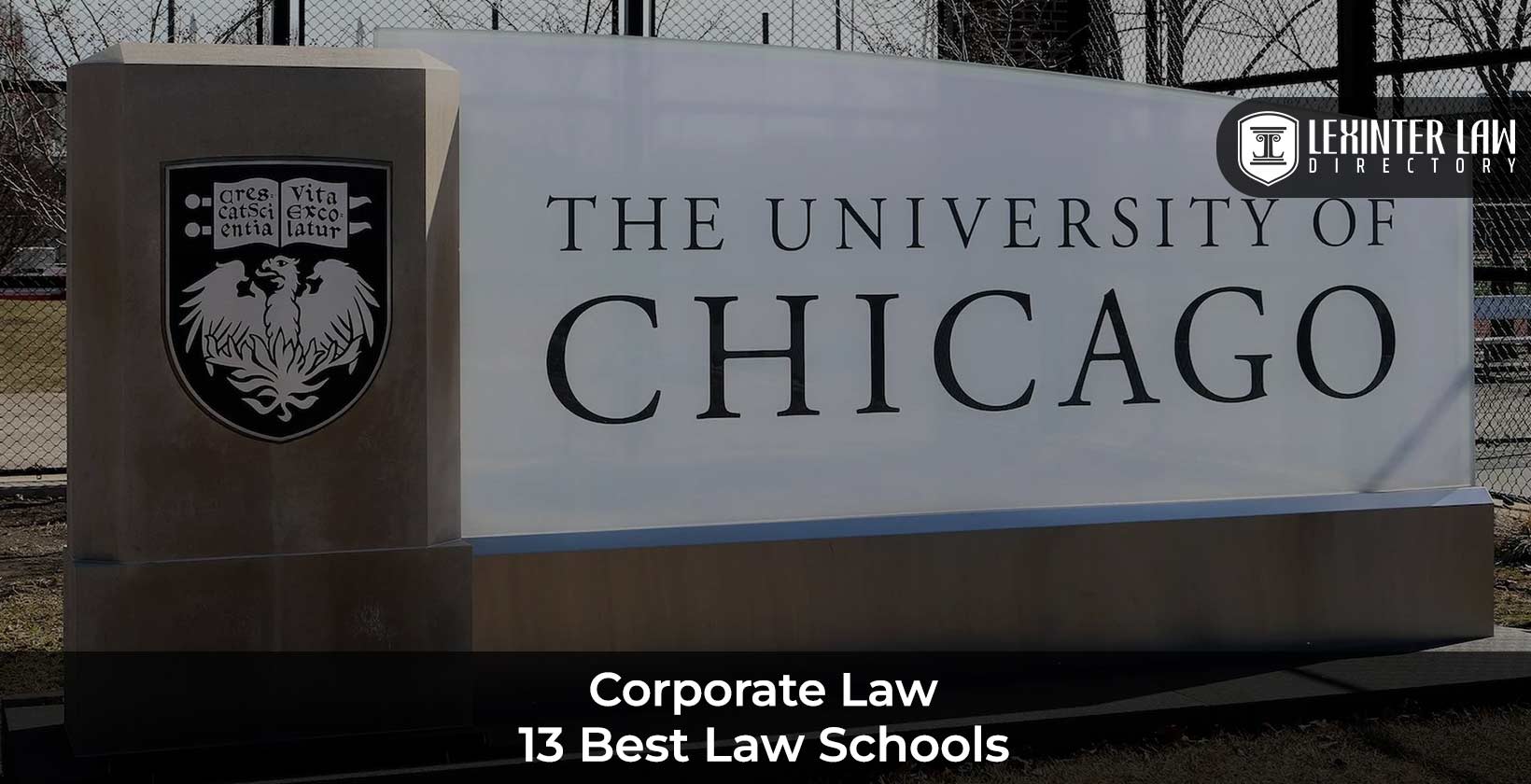13 Best Law Schools For Corporate Law
The 13 best law schools for corporate law are the prestigious law schools offering numerous opportunities for aspiring business lawyers. Corporate law is a highly specialized field within the legal profession, requiring a comprehensive understanding of various business-related legal matters. Aspiring lawyers aiming to excel in the corporate law domain seek education from the best law schools in the country known for their corporate law programs.
Stanford Law School offers a distinctive LL.M. in corporate governance and practice, perfectly designed for an aspiring business lawyer. The program benefits from the expertise of the Stanford Graduate School of Business, covering critical subjects like accounting, finance, and mergers and acquisitions. New York University School of Law, another leading institution, stands out with its LL.M. in Corporation Law. The corporate law degree combines teachings from the NYU Stern School of Business, ensuring a well-rounded legal education. Duke Law School, similarly, provides a robust corporate law curriculum, including courses in securities regulation, bankruptcy, and corporate finance. The best business law school prepares students for the dynamic demands of corporate law practice, ensuring they are well-versed in legal and business principles.
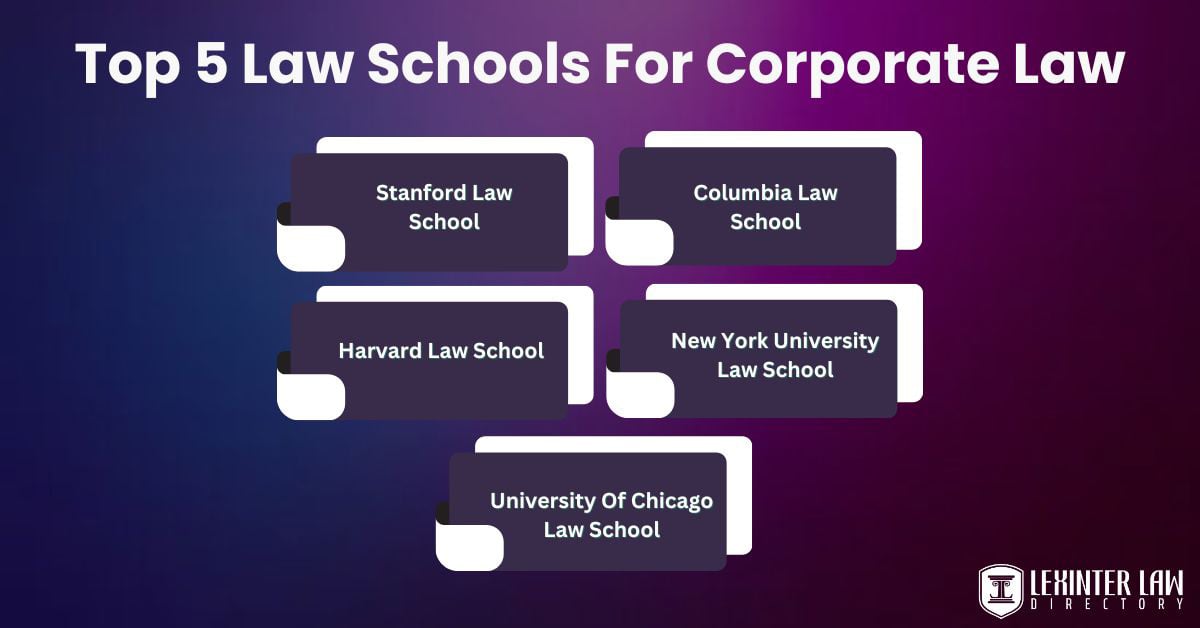
The top 5 law schools for corporate law are listed below.
- Stanford Law School: Stanford University Law School was established in 1893, providing a rigorous legal education with a strong emphasis on interdisciplinary studies. Stanford Law is ranked 1st among the best law schools and 1st in corporate law as well. The school’s LL.M. in corporate governance and practice focuses on preparing lawyers for complex business and transactional law roles. The Stanford Law and Policy Lab offers students opportunities to engage in real-world policy issues, integrating corporate law principles with practical applications.
- Columbia Law School: Columbia University Law School, established in 1858, is renowned for its rigorous academic programs and strong emphasis on public service. Columbia Law, located in New York City, offers unparalleled access to the nation’s financial and legal hubs. The law school offers various legal programs, with a 12.23% acceptance rate. The school’s corporate law program is one of the most comprehensive in the country, providing students with in-depth knowledge of corporate law.
- Harvard Law School: Harvard University Law School, located in Cambridge, ranks 2nd in corporate law and 4th nationally among the best law schools. The law school, established in 1817, is the oldest continuously operating law school in the United States. Harvard’s law and business program provides students with a robust understanding of corporate law, covering areas incorporating corporate finance, securities regulation, mergers and acquisitions, and corporate governance.
- New York University Law School: New York University Law School, one of the premier law schools, is known for its rigorous academic environment and extensive clinical programs. The law school, established in 1835, is very competitive, with an acceptance rate of 16.67% for the 2023-24 academic year. The school’s LL.M. in corporation law program provides an in-depth understanding of corporate finance, mergers and acquisitions, and securities regulation.
- University Of Chicago Law School: The University of Chicago Law School, established in 1902, is renowned for its emphasis on interdisciplinary education and its rigorous approach to legal studies. The law school boasts a graduation rate of 93.9% for its graduates, including corporate law graduates. The law school’s Doctoroff business leadership program integrates legal and business education, preparing students for leadership roles in corporate law and business. The school’s corporate law program is notable, ranking 4th in business/ corporate law programs nationally.
Table of Contents
- 1. Stanford Law School
- 2. Columbia Law School
- 3. Harvard Law School
- 4. New York University Law School
- 5. University Of Chicago Law School
- 6. Penn Carey Law
- 7. UC Berkeley School Of Law
- 8. University Of Michigan Law School
- 9. University Of Virginia School Of Law
- 10. Yale Law School
- 11. Northwestern University Pritzker School Of Law
- 12. Duke University School Of Law
- 13. Georgetown University Law Center
- How To Choose The Best Law School For Corporate Law?
- What Is The Best College Major For Corporate Law?
- How To Become A Corporate Lawyer?
- How Long Would It Take To Study Corporate Law?
- What Can You Expect From A Career As A Corporate Lawyer?
- What Is The Difference Between A Corporate Lawyer And An Employment Lawyer?
- How Do Corporate Lawyers Earn?
- Where Do Corporate Lawyers Work?
- How To Find Good Corporate Lawyers Near Me With Lexinter?
1. Stanford Law School

Stanford Law School, established in 1893, is one of the most prestigious private law schools situated in California. SLS is part of Stanford University, which is highly regarded for its progressive research, extensive curriculum, and practical legal training through clinics. Stanford Law offers various degree programs, including JD, LLM, JSD, and MLS. The JD program is an intensive program offered in a collegial and interdisciplinary environment. The LLM program is a specialized program where students must take a minimum of 35 credit units and a maximum of 45 credit units. The law school offers LLM degrees in four areas of study, including corporate governance and practice, as well as environmental law and policy. Getting admitted to Stanford Law School is highly competitive, with an acceptance rate of around 9%. Admitted students possess strong academic credentials, including median GPAs of 3.92 and LSAT scores of 173. The admissions process considers work experience, extracurricular activities, and personal essays. A holistic review creates a diverse and dynamic student body.
Stanford Law School’s tuition is $74,475 for the 2024-2025 academic year. Additional costs, including housing, food, personal expenses, and fees, bring the total estimated cost to $116,814 (in-state students) and $118,398 (out-of-state students). Financial aid and scholarships are available to help students manage expenses. 75-80% of the student body, approximately, receives a tuition fellowship or loan assistance. Stanford Law consistently ranks among the top law schools in the United States and globally. Stanford is ranked 1st in best law schools according to U.S. News & World Report. The specialty rankings include 1st in business/corporate law, 2nd in clinical training, and 3rd in constitutional law. Stanford Law School offers specialized programs in corporate law that integrate rigorous academic training with practical experience. The Master of Laws (LL.M.) in Corporate Governance and Practice focuses on areas including international business transactions, regulation, and litigation. The program prepares students to handle complex corporate matters, including mergers and acquisitions, securities regulation, and private equity investing. The joint degree programs at Stanford Law School, such as the JD/MBA, further enhance opportunities in corporate law. The programs combine legal education with business management training, allowing students to gain expertise in the fields. The interdisciplinary approach prepares graduates for leadership roles in corporate law, bridging the gap between legal and business decision-making.
The faculty at Stanford Law School consists of renowned experts in corporate law and related fields. Professors like Joseph Bankman, Robert M. Daines, and Ronald J. Gilson contribute significant expertise in corporate governance, securities regulation, and law and economics. The professor’s research and teaching reflect a deep understanding of corporate law’s theoretical and practical aspects. Stanford Law School provides extensive clinical opportunities for students interested in corporate law. The school’s clinics offer hands-on experience in areas like securities litigation, corporate governance, and venture capital. Students participate in the organizations and transactions clinic, where they provide legal assistance to non-profits and small businesses. The practical training allows students to apply classroom knowledge to real-world situations, developing critical skills needed for corporate legal practice.
Stanford Law School boasts a robust network and vibrant alumni community that significantly benefits students pursuing corporate law. The Office of External Relations connects alumni through various intellectual and social events, reunions, and volunteer activities. Stanford’s alumni chapters in major cities like New York, Los Angeles, and Washington, D.C., provide valuable networking opportunities, enhancing career prospects for current students and graduates alike. Stanford Law School offers exceptional networking opportunities through its vast alumni network, which includes notable figures in corporate law. Larry Kramer, who served as the Dean of Stanford Law from 2004 to 2012, went on to become the President of the William and Flora Hewlett Foundation. Lary’s leadership and influence extend into corporate governance and philanthropy, illustrating the diverse career paths available to Stanford Law graduates. Another prominent alumnus is Robert J. Fisher, who earned his J.D. from Stanford Law and became the Chairman of Gap Inc. Fisher’s role at a leading multinational corporation highlights the significant impact Stanford alumni have in the corporate sector.
SLS offers a robust selection of courses in corporate law that provide students with theoretical foundations and practical insights into the field. Key offerings include “Corporations,” which covers legal principles governing manager-investor relations; “Mergers and Acquisitions,” which focuses on technology sector deals; and “Corporate Finance I,” which addresses financial decision-making and asset valuation. “Global Corporate Governance,” for example, examines contemporary topics and trends in corporate law from a comparative perspective, addressing issues like shareholder activism and environmental, social, and governance (ESG) concerns. Stanford Law boasts impressive employment outcomes for the class of 2023, including a strong focus on contract law. A total of 83.6% of graduates secured long-term, full-time legal jobs. Employment of any kind reached 96.7%. Judicial clerkships attracted 24% of graduates, highlighting their high-level placements. Law graduates joined large law firms, emphasizing the demand for Stanford-trained lawyers, especially corporate lawyers. Law firm salaries ranged from $112,000 to $250,000 annually. Public interest roles offered between $48,000 and $90,000.
2. Columbia Law School

Columbia Law School, an integral part of Columbia University in New York City, is renowned for its rigorous curriculum and exceptional faculty. The private Ivy League institute, established in 1858, has a long history of producing influential legal professionals and scholars. Columbia Law is located in the vibrant legal and financial hub of New York City and has been known for its legal scholarship since the 18th century. Columbia Law School offers diverse programs, including the J.D., LL.M., and J.S.D. degrees. The J.D. program includes foundational courses such as legal methods and legal practice workshops, which equip students with essential skills in legal research, writing, and analysis. LL.M. program, customizable to fit individual career goals, attracts international lawyers seeking advanced legal training. Columbia Law School maintains a highly selective admissions process with an acceptance rate of around 12.2%. The competitive rate reflects the school’s rigorous standards and commitment to admitting students with exceptional academic and professional potential.
Tuition for Columbia Law School’s J.D. program is among the highest in the nation, with the cost for the 2024-2025 academic year estimated at $81,888. Additional expenses, including housing, food, and personal costs, bring the total cost of attendance to approximately $89,775 per year. Financial aid, including grants and loans, is available to help students manage the costs. Columbia’s loan repayment assistance program (LRAP) further supports graduates pursuing lower-paying public interest or government jobs by helping them repay educational loans. Columbia University Law School consistently secures a place within the top 10 in various rankings, including being ranked 8th by U.S. News & World Report in 2024. The school’s specialty rankings include 1st in contracts law, 2nd in business law, and 4th in international law. The school’s reputation for academic excellence and its robust alumni network contribute to its high standing.
Columbia Law School offers specialized programs in corporate law for students aiming for careers in business and finance law. The programs include courses in mergers and acquisitions, corporate governance, and securities regulation. Columbia’s Center on Corporate Governance and the Ira M. Millstein Center for Global Markets and Corporate Ownership provide students with opportunities to engage in cutting-edge research and policy discussions. The faculty at Columbia Law School includes leading scholars and practitioners in corporate law. Professors like John Coffee and Robert Jackson are renowned for their expertise in securities regulation and corporate governance. The professor’s extensive experience and research contributions significantly enhance the learning environment. Faculty members involve students in their research projects, providing mentorship and practical insights that bridge the gap between theory and practice. The engagement ensures that students are well-prepared for the legal challenges they face in their professional careers.
Columbia Law School offers numerous clinical opportunities for students interested in corporate law. The school’s clinics provide hands-on experience in real-world legal issues, allowing students to work on cases involving business transactions, corporate litigation, and regulatory compliance. The Entrepreneurship and Community Development Clinic, for instance, offers students the chance to assist startups and small businesses with legal matters. Columbia Law offers a comprehensive curriculum for students interested in corporate law. Key courses include mergers and acquisitions, corporate finance, securities regulation, and antitrust law. The Center on Corporate Governance, a prominent feature of Columbia Law, organizes workshops, conferences, and research projects that enhance students’ understanding of corporate law’s evolving landscape. Employment outcomes for Columbia Law graduates in corporate law are exceptionally strong. A significant percentage secure positions at top law firms, including Davis Polk & Wardwell, Cleary Gottlieb Steen & Hamilton, and Debevoise & Plimpton. The school’s graduation rate, including graduates of corporate law, is 98.3% within ten months of graduation.
3. Harvard Law School

Harvard University Law School, established in 1817, stands as the oldest continuously operating law school in the United States. Harvard Law is renowned for its significant contributions to legal education and its vast academic resources, including the largest academic law library globally. Harvard Law School offers a comprehensive J.D. program, providing a robust curriculum. First-year students participate in a January Experiential Term, focusing on practical legal skills and teamwork. Second and third-year students focus on electives based on their choice. Harvard, in addition, offers graduate programs, including the LL.M. and S.J.D., which attract lawyers from around the globe, enhancing their legal expertise and academic prowess. The school’s student-faculty ratio is 6.8:1, reflecting an engaging learning environment. The programs emphasize critical thinking, self-inquiry, and advanced scholarly. Harvard Law School is highly selective, with an acceptance rate of around 9.6%. The admissions process is competitive, reflecting the school’s prestigious reputation and rigorous academic standards. The J.D. program’s tuition at Harvard Law School is approximately $78,692 per year. The total cost of attendance, including costs of housing, books, and personal expenses, is estimated to be around $104,200 annually.
Harvard University Law School holds a prestigious reputation, consistently ranking among the top law schools worldwide. Harvard Law School is ranked 1st globally for law and legal studies in the 2024 QS World University Rankings, achieving perfect scores in several indicators. The U.S. News & World Report 2024 rankings placed Harvard Law School at a joint 4th position, reflecting its continued excellence in legal education as one of the Massachusetts top law schools. The law school ranks 7th in health care law, 2nd in business/corporate law, and 1st in constitutional law. Harvard Law School offers specialized programs in corporate law designed to prepare students for careers in business and finance. Harvard’s program on corporate governance and the program on international financial systems provide students with opportunities to engage in advanced studies and research in corporate law. The programs facilitate a deep understanding of corporate legal frameworks and emerging trends, ensuring graduates are well-equipped for the corporate legal sector.
HLS faculty includes renowned corporate law experts, such as Professors Lucian Bebchuk and Mark Roe. The professors are recognized for their contributions to corporate governance and financial regulation. The faculty expertise ensures that students receive a top-tier education in corporate law. Harvard Law School offers numerous clinical opportunities for students interested in corporate law. Clinics such as Transactional Law Clinics allow students to gain hands-on experience by providing legal services to clients in business transactions. The clinics enable students to apply classroom knowledge to real-world scenarios, developing practical skills essential for their future careers. Participation in the clinical programs helps students build a strong foundation in corporate law practice, preparing them for successful careers in the legal field.
Harvard University Law School boasts an extensive alumni network with over 40,000 members, facilitating robust networking opportunities for students and graduates. The Harvard Law School Association (HLSA) connects alumni globally, providing a platform for professional development and mentorship. Networking events, reunions, and online tools like the Amicus alumni directory enable students to connect with influential professionals in corporate law. Harvard Law School offers a comprehensive curriculum in corporate law, featuring courses including mergers and acquisitions, corporate finance, securities regulation, and corporate governance. The courses and programs ensure students understand corporate legal frameworks deeply. Employment outcomes for Harvard Law School graduates in corporate law are exceptional. 90.2% secure positions at top law firms and major corporations within ten months of graduation. Harvard corporate law graduates earn an average salary of $138K annually, including the average additional pay of $24K annually. The law school’s Bar passage rate for first-time exam takers is 98.5%.
4. New York University Law School

New York University School of Law (NYU Law), founded in 1835, stands as one of the oldest and most prestigious law schools in the United States. NYU is located in Greenwich Village, New York City, and it offers a robust academic environment and a diverse range of programs. NYU Law offers a comprehensive J.D. program, along with advanced degrees, including the LL.M. and J.S.D. The curriculum includes over 300 courses and 40 clinics, allowing students to gain hands-on legal experience. Specialized programs and centers, including the Center for Cybersecurity and the Institute for Policy Integrity, enable students to explore various legal fields deeply. Dual degree options, including the JD/MBA and JD/MPA, further enhance the academic offerings, allowing students to tailor their education to their career goals. The acceptance rate for NYU Law is approximately 16.76%, making it a highly competitive institution. The median LSAT score for admitted students is 172, and the median undergraduate GPA is 3.90. Tuition for NYU Law’s J.D. program is $80,014 per year. Additional fees for health, registration, and technology services bring the total cost of attendance higher. Financial aid is available, with 60.79% of full-time students receiving grants or scholarships, averaging $25,000.
New York University School of Law (NYU Law) holds a prestigious reputation, ranked 9th among the top law schools according to the 2024 U.S. News & World Report rankings. New York Law’s specialty rankings include 1st in tax law, 2nd in clinical training, and 3rd in intellectual property law. NYU Law offers specialized programs in corporate law, including courses in mergers and acquisitions, corporate finance, and securities regulation. The school’s Center for Business and Financial Law and the Institute for Corporate Governance and Finance provide students with advanced knowledge and research opportunities in the areas. The programs are designed to prepare students for the complex legal challenges they face in the corporate sector. The faculty at NYU Law includes leading experts in corporate law, like Professor Stephen Choi, an authority on securities regulation, and Professor Jennifer Arlen, a renowned scholar in corporate governance. Faculty members are actively involved in progressive research and frequently contribute to policy discussions and legal reforms.
NYU Law provides extensive clinical opportunities for students interested in corporate law. The Business Law Transactions Clinic and the International Transactions Clinic offer hands-on experience in dealing with real-world business and financial legal issues. The clinics allow students to work on actual cases, providing legal services to startups, small businesses, and international clients. NYU Law, one of the New York top law schools, boasts a robust alumni network that is particularly influential in corporate law. The Law Alumni Association (LAA) organizes numerous events and networking opportunities, connecting students with alumni who hold prominent positions in law firms, corporations, and government. Alumni participate in lectures, career panels, and social gatherings, providing current students with valuable insights and professional connections. Course offers for corporate law at NYU include mergers and acquisitions, corporate finance, and securities regulation. The program, in addition, features advanced electives and seminars on topics like corporate governance and international business transactions. NYU’s strategic partnership with the Stern School of Business allows students to take interdisciplinary courses that blend law and business. Graduates from NYU Law have excellent employment outcomes, particularly in the field of corporate law. NYU Law’s graduation rate is 97.5% within ten months of graduation. The school’s Bar passage rate is 94.9% for first-time Bar passage rate.
5. University Of Chicago Law School
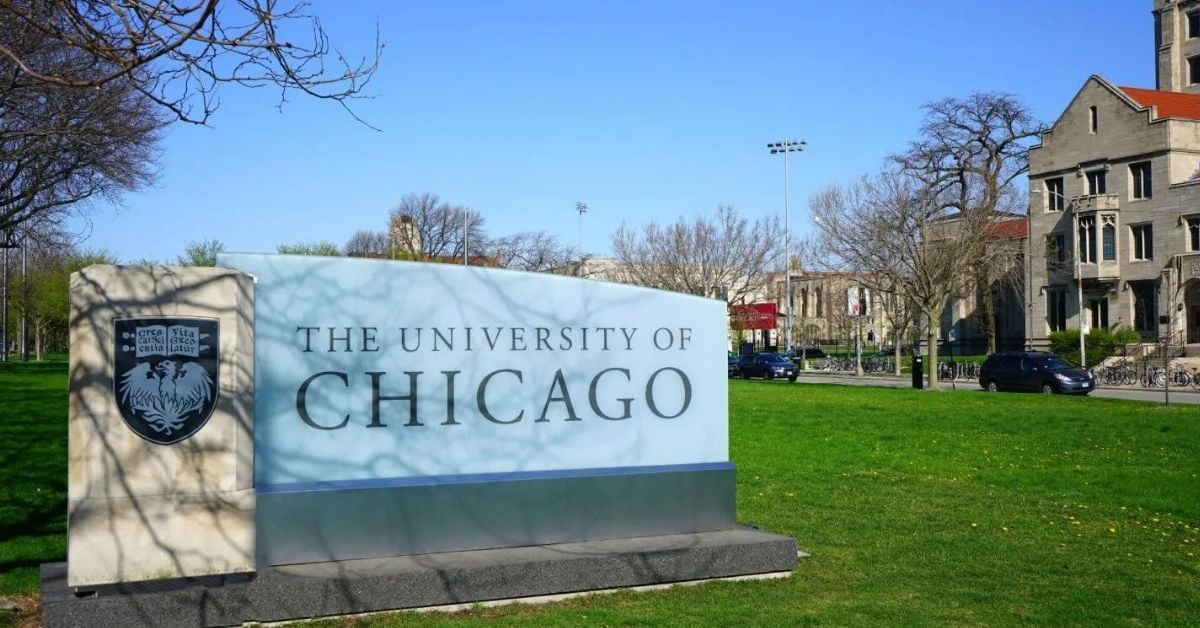
The University of Chicago Law School, established in 1902, is a prominent institution within the University of Chicago. Chicago law, known for its rigorous academic environment and influential faculty, emphasizes an interdisciplinary approach to legal education. Chicago Law offers various programs, including a JD program, LLM, JSD, and MLS. Students must complete a set of fundamental courses in the first year and 40 core credit hours in the second and third years of the J.D. program. The JD program at the University of Chicago Law School operates on a quarter system, allowing students to take more courses than under a traditional semester system. The first-year curriculum includes core courses such as contracts, torts, property, criminal law, civil procedure, and a yearlong research and writing course. Upper-year students choose from over 200 courses, allowing for a highly personalized education without the need for formal concentrations. The law school offers various specialized programs and certificates, including the Doctoroff Business Leadership Program and the Graduate Program in Health Administration and Policy (GPHAP). Joint degrees are available with the Booth School of Business, the Harris School of Public Policy, and the Divinity School. The tuition for the JD program is $71,192 for the academic year 2024-25. Including living costs and other expenses, the total estimated cost of attendance is approximately $90,360 per year. The school is ranked 3rd by U.S. News & World Report for 2024.
The University of Chicago Law School consistently ranks among the top law schools in the United States, holding the 3rd position in the 2024 U.S. News & World Report rankings. Chicago Law, in addition, is ranked 2nd in constitutional law, 2nd in commercial law, 4th in business law, and 9th in international law. The high ranking reflects the school’s commitment to excellence in legal education and its impact on the legal field. Chicago Law School offers specialized programs in corporate law for students aspiring to careers in business and finance law. The Law School’s Institute for Law and Economics provides students with opportunities to engage in advanced research and policy discussions. The specialized programs ensure that students gain a deep understanding of corporate legal frameworks and are well-prepared for careers in the corporate sector. The faculty at the University of Chicago Law School includes leading scholars in corporate law, like Professor Douglas Baird, an expert in bankruptcy law, and Professor M. Todd Henderson, known for his work in corporate governance and securities regulation. The faculty’s extensive research and involvement in legal reforms significantly enhance the learning environment. Faculty members collaborate with students on research projects, providing mentorship and practical insights that bridge the gap between theory and practice. The strong faculty expertise ensures that students receive top-tier education in corporate law.
The University of Chicago Law School offers numerous clinical opportunities for students interested in corporate law. The Kirkland & Ellis Corporate Lab provides hands-on experience by allowing students to work on real-world business transactions and legal issues. The clinic collaborates with top law firms and corporations, giving students exposure to practical aspects of corporate law. Participation in the clinics helps students apply their classroom knowledge to real-world scenarios, developing essential skills for their future careers. The clinical opportunities are invaluable for preparing students to meet the demands of the corporate legal sector. The University of Chicago Law School boasts a strong alumni network, which is particularly valuable for students pursuing corporate law. Alumni engage in networking events, mentorship programs, and reunions, providing current students with opportunities to connect with leaders in the legal field. The Law School’s alumni hold prominent positions in top law firms, corporations, and government, enhancing the professional network available to students.
Chicago Law School offers a comprehensive curriculum in corporate law, including course offerings including mergers and acquisitions, corporate finance, securities regulation, and corporate governance. The Doctoroff Business Leadership Program integrates business training into the law curriculum, preparing students for roles that require legal and business acumen. The program includes coursework taught by faculty from the Booth School of Business, providing a robust foundation in business and legal principles. Employment outcomes for graduates of the University of Chicago Law School are exceptional, particularly in corporate law. The majority of graduates secure positions at top law firms and major corporations, with a significant percentage earning high starting salaries. 93.9% had long-term, full-time legal jobs for the class of 2023. 59.6% of the graduates work in national law firms, and 26.8% joined as judicial clerkships for the class of 2023.
6. Penn Carey Law

The University of Pennsylvania Carey Law School, known as Penn Carey Law, ranks as one of the top law schools in the United States. Penn Care Law, established in 1850, is a renowned private Ivy League institution situated in Philadelphia, Pennsylvania. Penn Carey Law offers the degrees of Juris Doctor, Master of Laws, Master of Comparative Laws, Master in Law (ML), and Doctor of the Science of Law (SJD). The JD program is a unique, globally recognized, and highly experimental education. The JD program includes 70 hours of pro bono legal service, focusing on practical learning. The Master in Law ML degree offers three ways for specialization: the ML degree program, the Certificate in Law program, and experience in ad-hoc coursework. The acceptance rate at Penn Carey Law stands at approximately 9.9%, reflecting its highly competitive admissions process. The median LSAT score is 172, and the median GPA is 3.92 for the class of 2024. The selectivity ensures that students admitted to Penn Carey Law are among the most academically accomplished and diverse.
Tuition for the 2023-2024 academic year at Penn Carey Law is $76,934. Additional fees include a general fee of $3,954, a clinical fee of $716, and a technology fee of $1,234. Living expenses in Philadelphia, estimated at $28,998 per year, add to the total cost of attendance. Penn Carey Law holds a prestigious reputation, consistently ranking among the top law schools in the United States. The law school, ranked 4th by U.S. News & World Report in 2024, shares the position with Harvard, Duke, and the University of Virginia. Penn Care Law is ranked 4th in corporate law, 5th in commercial law, and 11th in constitutional law. The ranking reflects the school’s commitment to academic excellence among the Pennysylvania top law schools. Penn Carey Law offers specialized programs in corporate law, leveraging its strong ties with the Wharton School of Business. The Institute for Law and Economics (ILE) is a key component of the specialization, focusing on corporate governance, business law, and finance. Students engage in courses that cover mergers and acquisitions, securities regulation, and corporate finance, providing a deep understanding of corporate legal issues. The integrated JD/MBA program allows students to gain comprehensive knowledge and skills, preparing them for leadership roles in the corporate sector.
Penn Carey’s corporate law faculty includes distinguished experts such as Jill Fisch and William Bratton. Jill Fisch, the Saul A. Fox, a distinguished professor of business law, co-directs the Institute for Law and Economics, focusing on corporate governance and securities regulation. William Bratton, Nicholas F. Gallicchio professor of law, specializes in corporate finance and theory, contributing extensive research and publications in the areas. The faculty members bring practical and scholarly expertise, enhancing the educational experience for students interested in corporate law. Penn Carey Law offers extensive clinical opportunities in corporate law, providing hands-on experience through its various programs. The Gittis Legal Clinics, including the Entrepreneurship Legal Clinic, enable students to work with startups and businesses, offering real-world legal services. Students engage in transactional work, gaining practical skills in corporate governance, contracts, and compliance. The clinical experiences are designed to complement classroom learning, bridging the gap between theory and practice.
Networking and alumni connections play a crucial role in the corporate law field at Penn Carey Law. The school boasts a vast and influential alumni network, including leaders in major law firms, corporations, and government agencies. The Institute for Law and Economics organizes events and conferences, fostering connections between students, alumni, and industry professionals. Prominent alumni like David Cohen, Comcast’s Senior Executive Vice President, regularly engage with the school, offering mentorship and networking opportunities. Penn Carey Law offers a comprehensive range of courses in corporate law designed to equip students with essential knowledge and skills. Key courses include mergers and acquisitions, securities regulation, corporate finance, and antitrust law. The curriculum integrates interdisciplinary perspectives from the Wharton School, allowing students to gain insights into business and economics. Advanced seminars and workshops provide in-depth exploration of specific corporate law topics, ensuring a well-rounded education. Employment outcomes for Penn Carey Law graduates are significant. 245 graduates out of 248 students secured positions at top law firms, corporations, and regulatory agencies for the class of 2023. 73% of its graduates, including corporate law graduates, work in law firms, 11% work in a judicial clerkship, and 9.4% work in public interest law firms.
7. UC Berkeley School Of Law
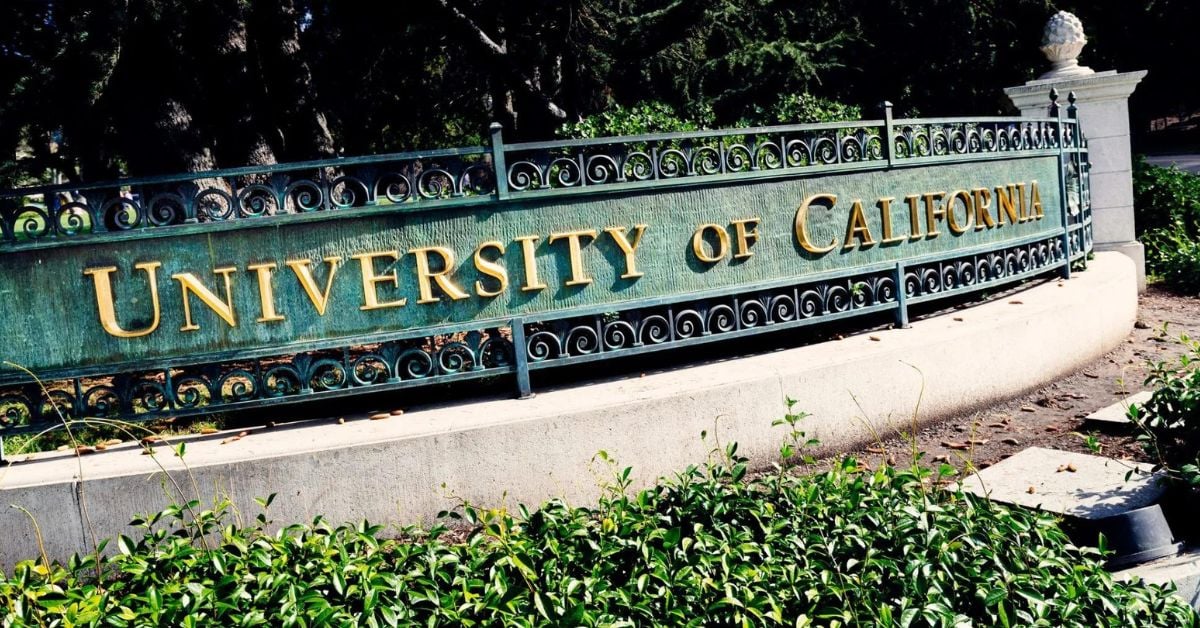
The University of California, Berkeley Law, established in 1894, is situated in Berkeley, California. The law school, previously known as Boalt Hall, is a renowned public law school. Berkeley Law offers several prestigious law degrees. The JD program spans three years and prepares students for various legal careers focusing on academic excellence, professional leadership, and public service. 320 to 330 students enter the demanding, engaging, and selective JD class every year. Opportunities for specialization include business law, environmental law, law and technology, international legal studies, and social justice. The LLM program, tailored for international students and U.S. lawyers, provides advanced legal training and flexibility. The JSD program emphasizes independent research, leading to a dissertation contributing significantly to law. Berkeley Law, in addition, offers several online programs focusing on areas like artificial intelligence (AI), finance, and environmental strategies. The University of California, Berkeley School of Law has an acceptance rate of approximately 14.92% for the 2024 academic year. The competitive program requires a median LSAT score of 170 and a median undergraduate GPA of 3.87. Tuition and fees for the JD program in 2024 are $63,196 for California residents and $75,624 for non-residents. Students must pay $6,442 for their health insurance fee. The total cost of attendance is approximately $100,224 for in-state students and $112,652 for out-of-state students.
The University of California, Berkeley School of Law ranks 12th according to U.S. News & World Report law school rankings. Berkeley Law School excels in intellectual property law and environmental law, ranking 1st. The law school holds 2nd place in criminal law/criminal procedure and 3rd in corporate law. The University of California, Berkeley Law offers specialized programs in corporate law through its Berkeley Center for Law and Business (BCLB). BCLB focuses on key areas like corporate governance, mergers and acquisitions, venture capital, and financial regulation. The center provides students with practical and theoretical knowledge, leveraging partnerships with the business community and governmental organizations. Faculty expertise in corporate law at Berkeley Law includes prominent professors like Steven Davidoff Solomon and Stavros Gadinis. Professor Steven Davidoff Solomon, known as the “Deal Professor,” focuses on mergers and acquisitions, financial regulation, and capital markets. Professor Stavros Gadinis specializes in the interplay between companies and regulators, examining financial regulation and international business transactions. Berkeley Law, one of California top law schools, offers significant clinical opportunities for students interested in corporate law. The New Business Community Law Clinic provides hands-on experience by assisting start-up entrepreneurs with legal issues. JD and MBA students collaborate to offer free legal help to over 200 start-ups, gaining practical experience in transactional law. The clinic bridges the gap between academic learning and practical application, preparing students for real-world corporate legal challenges.
Berkeley Law boasts a robust network and alumni base, which is particularly beneficial for students pursuing corporate law. The Berkeley Center for Law and Business (BCLB) connects students with industry leaders through events and mentorship programs. Notable alumni like Steven Davidoff Solomon, a renowned expert in mergers and acquisitions, frequently engage with students. The Berkeley Network offers professional networking opportunities. The course offerings at Berkeley Law in corporate law are comprehensive and diverse. The curriculum includes over 60 courses covering essential topics such as corporate finance, mergers and acquisitions, and securities regulation. Students benefit from interdisciplinary courses that integrate business and legal principles. The Berkeley Center for Law and Business ensures that students receive cutting-edge education, preparing them for complex legal environments in the corporate world. Berkeley Law graduates achieve remarkable employment outcomes, with 96.4% employed nine months after graduation and 99.7% securing long-term roles. Graduates earn a median salary of $205,000 and an average salary of $162,456, including corporate law graduates. Career paths include judicial clerkships, public interest positions, and government roles, offering diverse career opportunities.
8. University Of Michigan Law School

The University of Michigan (Ann Arbor) Law is a public institution situated in Ann Arbor. The school, established in 1859, has a rich history of academic excellence and a commitment to providing a comprehensive legal education. The law school offers a dynamic and collaborative environment, emphasizing theoretical and practical aspects of legal education. Michigan Law offers various programs, including the Juris Doctor (JD), Master of Laws (LLM), and Doctor of the Science of Law (SJD). The JD program requires students to complete 83 credit hours, incorporating a mix of required courses and electives. The LLM program is designed for lawyers who want to deepen their legal expertise, while the SJD program focuses on advanced legal research and scholarship. Michigan Law, in addition, provides dual degree options, allowing students to combine their JD with degrees in fields such as business, public policy, and social work. The acceptance rate at Michigan Law is 12.58%, reflecting its competitive admissions process. Prospective students have LSAT scores ranging from a 25th percentile of 165 to a 75th percentile of 172, with a median of 171. The GPA ranges similarly impress, with a median of 3.85, a 25th percentile of 3.64, and a 75th percentile of 3.92. The school seeks to assemble a diverse and talented student body, offering a rigorous selection process to ensure high standards.
Tuition for the 2023-2024 academic year is $69,584 for Michigan residents and $72,584 for non-residents. Living costs, including room, board, books, and personal expenses, are estimated to be an additional $24,144 per year. Michigan Law offers substantial financial aid, with about 85.39% of students receiving grants or scholarships, averaging $30,000 per student. The University of Michigan Law School holds a prestigious reputation and consistently ranks among the top law schools in the United States. Michigan Law is currently ranked 9th by U.S. News & World Report, reflecting its commitment to academic excellence and successful student outcomes. The law school’s specialty rankings include 5th in criminal law, 6th in international law, and 8th in corporate law. Michigan Law offers specialized programs in corporate law through its robust curriculum and dedicated centers. The school’s corporate law offerings are among the strongest in the nation, covering areas encompassing mergers and acquisitions, securities regulation, and corporate governance. The Master of Advanced Corporation Law (MACL) program is a notable feature, providing in-depth knowledge on global corporate compliance, international corporate governance, and US securities regulation.
Faculty expertise in corporate law at Michigan Law includes prominent professors like Vikramaditya Khanna. Professor Vikramaditya Khanna, specializing in corporate and securities law, focuses on corporate governance, law and economics, and the regulation of emerging markets. Khanna’s combined expertise provides students with a comprehensive understanding of corporate law and its applications in domestic and international contexts. The University of Michigan Law School provides extensive clinical opportunities for students interested in corporate law. The Zell Entrepreneurship Clinic offers practical experience by advising entrepreneurial ventures and startups. Students in the clinic handle real legal issues such as forming legal entities, drafting contracts, and navigating intellectual property laws. The clinic emphasizes transactional and counseling services, preparing students for real-world corporate legal practice. Michigan Law’s alumni network is a powerful asset for students pursuing careers in corporate law. Notable alumni like Mike Ross, a partner at Sidley Austin LLP, frequently engage with the school and its students. The Alumni Directory and Michigan Law Connect platforms facilitate mentorship and networking, linking current students with successful alumni in various legal fields.
The course offerings in corporate law at Michigan Law are comprehensive and diverse, notable among Michigan top law schools. Key courses include corporate finance, mergers and acquisitions, securities regulation, and international corporate governance. The Master of Advanced Corporation Law (MACL) program offers specialized courses on global corporate compliance and cross-listings in securities markets. The courses integrate theoretical knowledge with practical applications, ensuring that students gain a deep understanding of corporate law principles and practices. Michigan Ann Arbor Law’s employment outcome is outstanding, with a first-time Bar passage rate of 95.5%. The school’s 96.9% of graduates secure full-time employment within ten months of graduation, including corporate graduates. The school’s emphasis on practical training and robust alumni connections significantly enhances career prospects for its students.
9. University Of Virginia School Of Law

The University of Virginia Law School stands as a prestigious institution among the law schools in Virginia, offering rigorous legal education. Virginia Law School, founded by Thomas Jefferson in 1819, is among the oldest in the United States. The school’s rich history reflects a commitment to excellence in legal studies and public service. The law school offers many degrees, including J.D., L.L.M., and S.J.D., and several dual-degree options in conjunction with different graduate divisions of the University. The J.D. program includes 250 courses and seminars, offering intensive short courses and advanced theory courses. The J.D. degree teaches students about trial advocacy, public speaking, seminars, and advanced law-related theory courses. Virginia’s Graduate Studies Program includes an intensive program for a small class of 50 students. The Doctor of Juridical Science (S.J.D.) is the highest law program of the school. A competitive 12.9% of total applicants to the Virginia Law School are accepted to the Law school. The required LSAT score lies between 166 and 173 (25th – 75th percentile). The GPA requirement for admission is 3.69 to 3.99. The tuition fee for the University of Virginia Law School is $68,500 for students of Virginia and $71,500 for students outside Virginia. The total cost of attendance is $106,747 for Virginia students and $109,747 for non-resident students.
The University of Virginia Law School ranking is 4th among the best law schools, clearly indicating the school’s academic excellence and rich tradition. The school’s notable rankings include 5th in tax law, 7th in criminal law, and 8th in corporate law. UVA Law holds high positions in various categories, including No. 1 for “Best Quality of Life” and “Best Professors” according to Princeton Review rankings. The school’s emphasis on providing a supportive and engaging environment contributes to its esteemed reputation, making it a top choice for students pursuing legal education. The law school in Virginia boasts an impressive Bar exam passage rate of 94.8%, reflecting the quality of the school’s legal education. UVA Law offers specialized programs in corporate law, notably through the John W. Glynn Jr. Law & Business Program. The program integrates business and legal analysis into the law school curriculum, providing students with a comprehensive understanding of corporate law, finance, and governance.
Faculty expertise at UVA Law is exemplified by professors like Cathy Hwang and Michal Barzuza. Professor Cathy Hwang, a noted expert in business law, focuses on mergers and acquisitions, corporate contracts, and corporate governance. Cathay’s work has been recognized multiple times among the top corporate law articles. Professor Michal Barzuza specializes in corporate governance and law and economics, exploring the effects of regulatory competition on corporate law. Michal’s research and teaching provide students with valuable insights into the nuances of corporate legal practice, enhancing the educational experience at UVA Law. The University of Virginia School of Law offers robust clinical opportunities for students interested in corporate law. One notable option is the John W. Glynn Jr. Law & Business Program, which bridges legal theory with business practices. The program provides practical experience through projects involving corporate clients, fostering skills in transactional law and business strategy. The Entrepreneurial Law Clinic allows students to work with startups, advising them on legal issues, including incorporation, contracts, and intellectual property. The clinic offers hands-on learning that prepares them for corporate legal practice.
Networking and alumni connections at UVA Law are substantial, particularly in corporate law. Notable alumni like Paul Mahoney, former Dean of UVA Law and a member of the Securities and Exchange Commission’s Investor Advisory Committee, regularly engage with the school. The Virginia top law schools, especially UVA Law Network, connect students with over 20,000 alumni worldwide, enhancing career opportunities through mentorship and professional guidance. The course offerings in corporate law at UVA Law are comprehensive and designed to equip students with essential knowledge and skills. Key courses include corporate finance, mergers and acquisitions, and securities regulation. The John W. Glynn Jr. Law & Business Program further enriches the curriculum with specialized courses like International Business Transactions and Corporate Governance. The courses integrate theoretical and practical perspectives, ensuring that students gain a deep understanding of corporate law’s complexities and applications. Employment outcomes for UVA Law graduates specializing in corporate law are exceptional. Graduates secure positions at top law firms, corporations, and regulatory agencies. The school’s Career Development Office provides extensive support, including job search assistance, resume reviews, and interview preparation.
10. Yale Law School
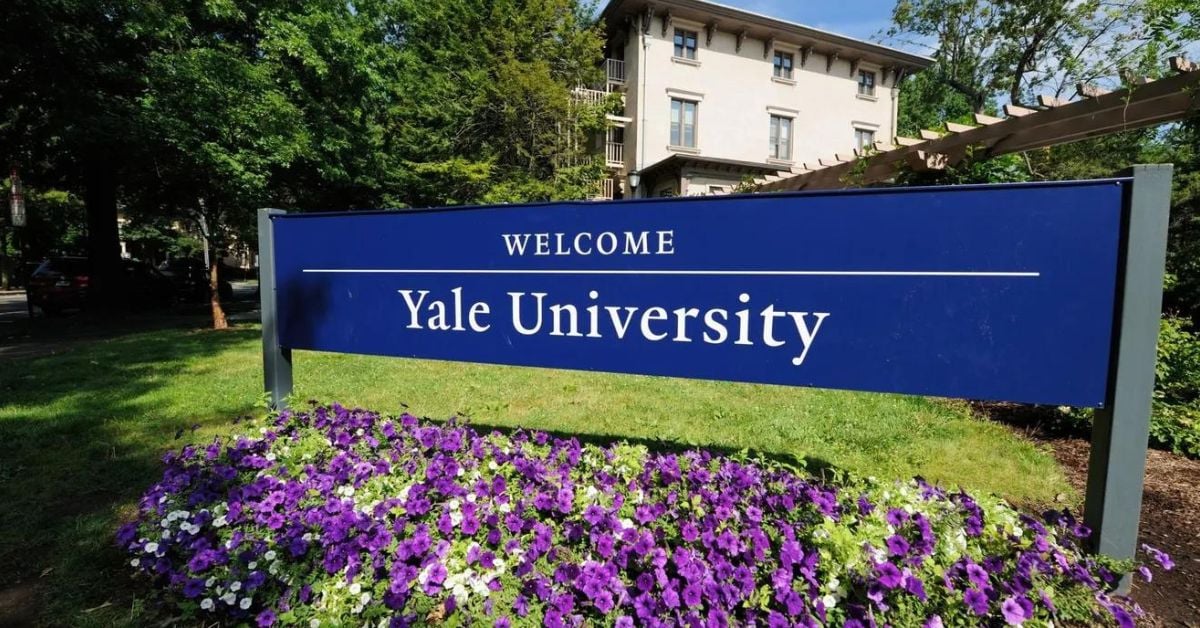
Yale University Law School, a globally prestigious law school for 200 years, offers unparalleled resources and expert faculty. Yale Law School was established in 1824, situated in New Haven, Connecticut. The school offers diverse law programs tailored to various academic and professional goals. The J.D. program includes nearly 200 courses yearly, providing comprehensive legal education. The LL.M. program is primarily designed for future law educators and features a flexible curriculum with small class sizes. The J.S.D. program, reserved for LL.M. graduates, emphasizes scholarly research, requiring a substantial dissertation. The M.S.L. program is perfect for professionals enhancing their expertise. Yale Law School’s acceptance rate is 5.58%, with LSAT requirements between 172 and 177 (25th and 75th percentile). The school’s GPA requirements stand between 3.89 and 4 (25th-75th percentile). The school maintains a 4.4:1 student-to-faculty ratio, providing personalized learning. Yale Law School’s tuition for the 2024-2025 academic year is $76,369, which marks a 3.39% increase from the previous year. The total cost of attendance, including living expenses, books, and personal costs, is approximately $100,469. Students receive an average financial aid amount of $32,852, reducing the effective cost.
Yale Law School ranks 1st in the best law schools, tied with Stanford. Specialty rankings include 3rd in constitutional law, 2nd in international law, and 5th in clinical training. Corporate/business law is ranked 8th, reflecting Yale’s strong emphasis on corporate law education. The prestigious ranking reflects Yale’s consistent excellence in academic performance, experiential learning opportunities, and faculty resources. Yale Law’s reputation is further enhanced by its contributions to legal scholarship and its strong emphasis on public service and professional ethics. Yale Law School offers specialized programs in corporate law through its Center for the Study of Corporate Law. The center focuses on corporate governance, securities regulation, and financial markets, providing students with comprehensive knowledge. The Financial Markets and Corporate Law Clinic gives students hands-on experience in public policy and regulatory debates. The programs integrate interdisciplinary approaches, leveraging resources from the Yale School of Management and different departments to offer a robust corporate law education.
Faculty expertise in corporate law at Yale Law is exemplified by professors including Jonathan R. Macey and Roberta Romano. Jonathan R. Macey, the Sam Harris Professor of corporate law, corporate finance, and securities law, has authored numerous influential books and articles on corporate law and governance. Roberta Romano, Sterling professor of law, co-directs the Center for the Study of Corporate Law and has significantly contributed to studying corporate governance, securities markets regulation, and institutional investor activism. The extensive research and teaching of the expert faculties provide students with unparalleled insights into corporate law. Yale Law School offers extensive clinical opportunities in corporate law through its Financial Markets and Corporate Law Clinic. The clinic introduces students to public policy debates in the regulatory context, focusing on corporate governance and capital markets. Students collaborate with faculty to produce comment letters and academic research on regulations proposed by institutions like the SEC and the Federal Reserve.
Networking at Yale Law School is robust, with a strong alumni network that provides significant support for students pursuing careers in corporate law. Notable alumni include Brad Karp, Chairman of Paul, Weiss, Rifkind, Wharton & Garrison LLP, who frequently engages with the school. Yale’s Cross Campus platform facilitates connections between students and alumni, enhancing professional opportunities and mentorship. Yale Law School offers various courses in corporate law, including corporate finance, mergers and acquisitions, and international business transactions. The curriculum is designed to give students a deep understanding of corporate legal principles and their applications. The school’s commitment to offering cutting-edge legal education ensures students are well-prepared for the complexities of corporate legal practice. Yale Law School’s employment outcomes for the Class of 2023 are impressive, reflecting the high graduate demand. 96.8% of graduates were employed, securing full-time, long-term positions within ten months of graduation. Fifty-four graduates accepted federal judicial clerkships, and thirty-eight entered public interest roles. Yale’s robust employment rate highlights its commitment to preparing students for successful legal careers, especially in contract law.
11. Northwestern University Pritzker School Of Law
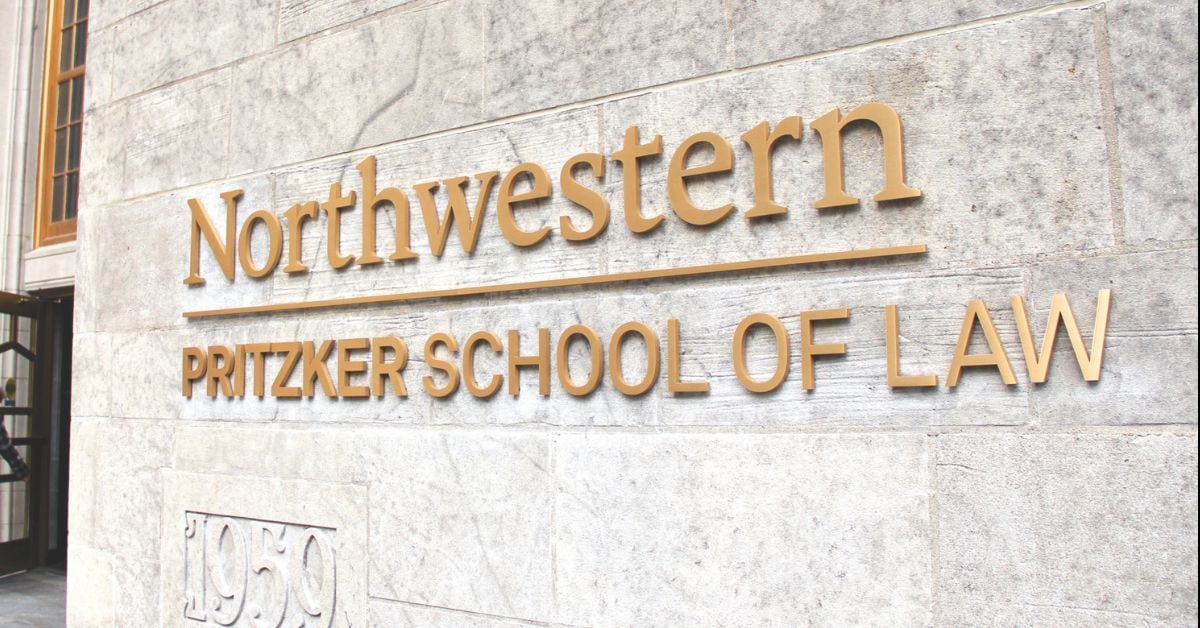
Northwestern University Pritzker School of Law is a renowned ABA-accredited law school situated in Chicago, Illinois. The private research institute was established in 1859. The school was named after Mr. J.B. Pritzker and his wife, who gave $100 million to the school. Northwestern Law School offers various programs, among which J.D. is the primary program. The school offers several joint degree programs, including JD-MBA, JD-PhD, JD-LLM in Taxation, and JD-LLM in International Human Rights. The institute, moreover, offers a Two-Year JD program designed for internationally educated attorneys. The tuition for the full-time Juris Doctor (JD) program for the 2024-2025 academic year is $76,704, while the JD-MBA program costs $108,606 annually. The LLM program costs around $80,252, and the MSL program costs approximately $63,160 for full-time students. Northwestern Pritzker Law boasts an acceptance rate of approximately 15.5%, reflecting its selective nature. The average LSAT score for admitted students is 172, and the median undergraduate GPA is around 3.92. The metrics reflect the high academic standards and selectivity of Northwestern Pritzker Law.
Northwestern Pritzker School of Law consistently ranks among the top law schools in the United States. The law school is ranked 9th among the best law schools according to U.S. News and World Report. The ranking highlights its strong emphasis on experiential learning, interdisciplinary education, and global engagement. The school’s notable rankings include tax law (ranks 3rd), clinical training (ranks 5th), and dispute resolution (ranks 7th). Northwestern Law offers specialized programs in corporate law through its Donald Pritzker Entrepreneurship Law Center and the Center on Law, Business, and Economics. The programs provide comprehensive training in corporate governance, mergers and acquisitions, and securities regulation. The Donald Pritzker Entrepreneurship Law Center, in particular, allows students to work with startups, offering practical experience in corporate transactions and business strategy. The hands-on approach prepares students for various aspects of corporate legal practice, ensuring they are well-equipped for their careers.
Faculty expertise in corporate law at Northwestern Law includes distinguished professors like Bernard Black and Esther Barron. Professor Bernard Black, the Nicholas D. Chabraja Professor, focuses on law and finance, corporate governance, and health policy. Black’s extensive research and publications contribute significantly to the field of corporate law. Professor Esther Barron, a Clinical Professor of Law and Director of the Donald Pritzker Entrepreneurship Law Center, specializes in entrepreneurship and startup law. Esther provides students with invaluable insights into the legal challenges faced by new businesses. Northwestern University Pritzker School of Law offers extensive clinical opportunities for students interested in corporate law. The Bluhm Legal Clinic includes the Donald Pritzker Entrepreneurship Law Center, where students gain hands-on experience advising startups on legal issues. The clinic allows students to work on business formation, contracts, and intellectual property, providing practical exposure to corporate legal practices.
Networking and alumni connections at Northwestern Law are robust, particularly in corporate law. Notable alumni like David Boies, a prominent litigator, frequently engage with the school, offering mentorship and networking opportunities. The alumni network provides invaluable support through events, mentorship programs, and professional guidance, helping students connect with experienced practitioners. The strong network enhances career prospects by linking students with leaders in the legal and business communities. The course offerings in corporate law at Northwestern Law are comprehensive, covering key areas such as corporate finance, mergers and acquisitions, and securities regulation. The Business Enterprise concentration provides a structured curriculum, including core courses and electives that allow students to tailor their studies to specific interests. Courses like business combinations and international business transactions provide in-depth knowledge and practical skills essential for corporate law practice. Employment outcomes for Northwestern Law graduates specializing in corporate law are exceptional. 78.8% of graduates secure positions at top law firms, corporations, and regulatory agencies, reflecting the school’s strong reputation and extensive alumni network. The Career Strategy Center offers comprehensive support, including job search assistance, resume reviews, and interview preparation. Northwestern Law’s emphasis on practical training and robust career services ensures high employability and successful career trajectories for its graduates, including corporate law graduates.
12. Duke University School Of Law
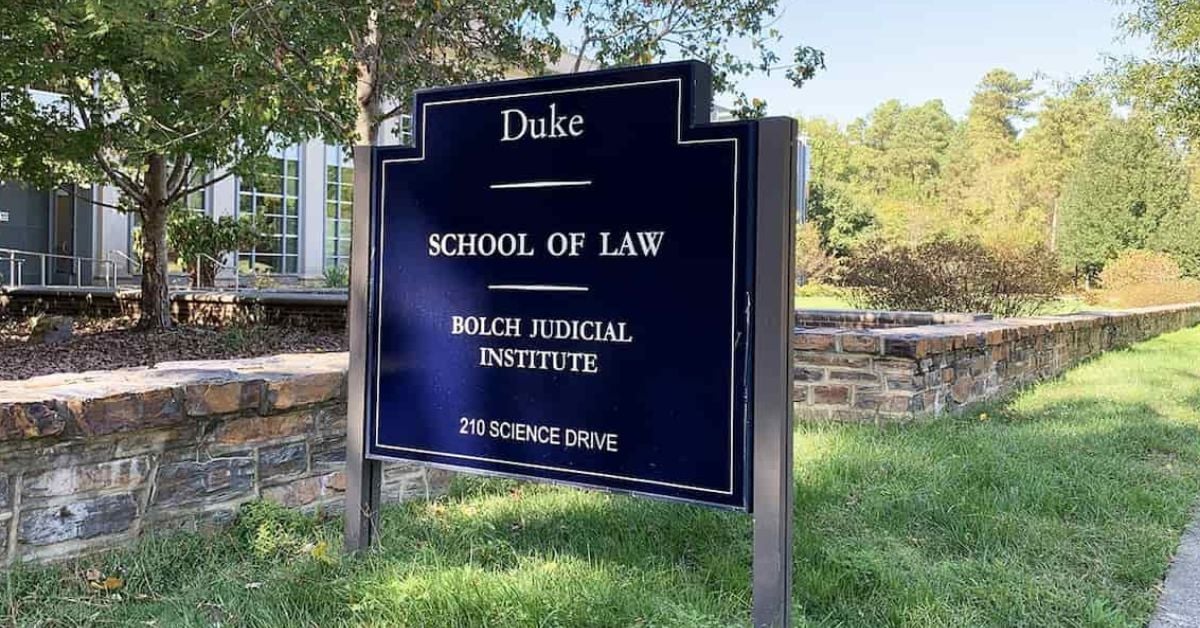
Duke University School of Law, located in Durham, North Carolina, is one of the leading law schools in the United States. Duke Law, established in 1904, prides itself on maintaining high standards of client representation and contributing to the dynamic legal profession. The school fosters a collaborative and interdisciplinary environment that supports innovative legal education and research. Duke Law offers a variety of programs, including the Juris Doctor (JD), Master of Laws (LLM), Doctor of Juridical Science (SJD), and various dual degree programs. The JD program is designed to provide a comprehensive legal education, while the LLM program introduces foreign law graduates to the U.S. legal system. The SJD program is aimed at students seeking advanced legal research opportunities. Dual degrees, including the JD/LLM in International & Comparative Law, allow students to gain specialized knowledge in different fields of law and business. The acceptance rate for Duke Law is 10.51%, making it one of the more selective law schools. Prospective students generally present strong academic credentials, with a median LSAT score of 170 and a median GPA of 3.87.
Tuition and fees at Duke Law amount to $75,618 for the academic year of 2023-24. The school offers substantial financial aid, with about 95% of full-time students receiving grants or scholarships, averaging $30,000. The financial support helps offset the cost of attendance, making a Duke Law education more accessible. The investment in a Duke Law degree is reflected in the high Bar passage rate of 94.44% and the successful employment outcomes for its graduates, who secure positions at top law firms, corporations, and government agencies. Duke University School of Law holds a prestigious reputation and consistently ranks among the top law schools in the United States. Duke Law ranks 4th in the U.S. News & World Report’s 2023 list of top law schools. The law school’s specialty rankings include 7th in criminal law, 10th in tax law, and 11th in corporate law. The high ranking reflects the school’s commitment to providing an exceptional legal education and preparing students for successful careers in various legal fields.
Duke Law offers specialized programs in corporate law through its robust curriculum and dedicated centers. The Global Financial Markets Center and the Center for Innovation Policy provide students with opportunities to explore complex corporate legal issues. Courses cover essential topics encompassing mergers and acquisitions, corporate governance, and securities regulation. The dual JD/MBA program, in partnership with the Fuqua School of Business, allows students to gain expertise in legal and business disciplines, preparing them for leadership roles in the corporate sector. Faculty expertise at Duke Law in corporate law includes distinguished professors such as James D. Cox and Lawrence A. Baxter. Professor James D. Cox, the Brainerd Currie Professor of Law, specializes in corporate and securities law, focusing on regulatory policies and corporate governance. James’s extensive research and publications have significantly influenced the field. Professor Lawrence A. Baxter, an expert in financial regulation and administrative law, examines the regulatory landscape of financial institutions and corporate compliance.
Duke University School of Law offers extensive clinical opportunities for students interested in corporate law. The Start-Up Ventures Clinic, directed by Professor Bryan McGann, provides hands-on experience advising start-ups on legal issues such as business formation, contracts, and intellectual property. The Community Enterprise Clinic allows students to assist nonprofit organizations and social entrepreneurs with community development projects. Networking and alumni connections at Duke Law are robust and influential. The alumni network, comprising over 12,000 graduates worldwide, includes leaders in various legal fields. Notable alumni like David Rubenstein, co-founder of The Carlyle Group, provide mentorship and networking opportunities. The Duke Law Alumni Association organizes events and mentorship programs, helping students and graduates connect with experienced professionals.
Duke Law’s course offerings in corporate law are comprehensive, covering essential topics like corporate finance, securities regulation, and business strategy for lawyers. The curriculum includes specialized courses like derivatives: financial markets, law and policy, and commercial transactions, providing students with a deep understanding of corporate legal principles. The courses, combined with interdisciplinary opportunities through the Fuqua School of Business, ensure that students receive a well-rounded education in corporate law. Duke Law’s employment outcome is exceptional, with 99.1% securing jobs within 10 months of graduation. Graduates, including corporate law graduates, secure positions at top law firms, corporations, and regulatory agencies, reflecting the school’s strong reputation and extensive alumni network.
13. Georgetown University Law Center

Georgetown University Law Center, the largest law school by enrollment, boasts over 2000 students. Georgetown Law, established in 1870, excels in various legal fields, providing comprehensive education and research opportunities. The law school’s strategic location in Washington, D.C., enhances prestige and provides unmatched opportunities for legal education and career advancement. Georgetown Law offers diverse law degree programs known for academic rigor and a comprehensive curriculum. The Juris Doctor (JD) program is the primary program that provides full-time, part-time, and advanced standing options. Practical skills integrate with theoretical knowledge, preparing students for various legal careers. The Master of Laws (LL.M.) program is primarily for domestic and international students specializing in taxation, global health law, and international business and economic law. Joint degree programs combine the JD with different graduate degrees, focusing on specialized knowledge. Georgetown Law’s acceptance rate stands at 19.57%, with only 2,119 out of 10,827 applicants gaining admission. The admissions process is rigorous, requiring an average LSAT score of 171 and a median GPA of 3.91. The tuition fee for the 2024-2025 academic year is $79,672, with the total cost of attendance approximately $113,450. Financial aid is available, with about 64.13% of full-time students receiving grants averaging $35,000.
Georgetown University Law Center ranks 14th among the nation’s best law schools. Georgetown Law holds the number 1 spot for clinical training, ranks 6th in health care law, and 5th in international law. Georgetown Law is renowned for strong academic programs, influential faculty, and a robust network of accomplished alumni. A distinguished reputation stems from rigorous academics, extensive externship opportunities, and a commitment to public service. Georgetown Law offers specialized programs in corporate law through its robust curriculum and dedicated centers. The Corporate Law and Securities Regulation program provides students with a deep understanding of corporate governance, mergers and acquisitions, and securities regulation. Courses such as federal banking regulation, financial regulation and financial crises, and corporate finance equip students with the necessary skills to navigate complex corporate legal issues. The program, in addition, emphasizes practical experience through clinics and externships, ensuring that students are well-prepared for careers in corporate law. Faculty expertise at Georgetown Law includes distinguished professors like Donald Langevoort and Chris Brummer. Professor Donald Langevoort, a prominent figure in securities regulation, focuses on the behavioral and institutional dynamics of the securities markets. Donald’s research has significantly influenced the understanding of securities fraud and market behavior. Professor Chris Brummer, an expert in international finance and regulation, directs the Institute of International Economic Law and examines the impact of global regulatory standards on financial markets.
Georgetown University Law Center offers extensive clinical opportunities for students interested in corporate law. The Social Enterprise and Nonprofit Law Clinic provides hands-on experience by allowing students to assist social enterprises and nonprofit organizations with various legal issues, like business formation, governance, and regulatory compliance. The clinical experiences are crucial for developing practical skills and understanding the complexities of corporate law. The intensive nature of Georgetown’s clinics ensures that students receive focused, individualized attention, helping them prepare for successful careers in corporate law. Networking and alumni connections at Georgetown Law are robust and influential. The school’s vast alumni network includes leaders in various legal fields, offering mentorship and career guidance to current students. Notable alumni like Federal Reserve Chair Jerome Powell exemplify the success and influence of Georgetown Law graduates. Alumni frequently engage with students through events, panels, and mentorship programs, providing valuable industry insights and professional connections that enhance career prospects for aspiring corporate lawyers.
Georgetown Law’s course offerings in corporate law are comprehensive and diverse. The curriculum includes essential courses such as corporate finance, securities regulation, and mergers and acquisitions. Specialized courses like federal banking regulation and financial regulation and financial crises, in addition, offer students in-depth knowledge of financial markets and regulatory environments. The courses, combined with practical experiences through clinics and externships, ensure that students receive a well-rounded education in corporate law. Graduates from Georgetown Law School specializing in corporate law secure influential positions in law firms, corporations, and regulatory agencies. 93% of graduates are employed within ten months of graduation. The Office of Career Strategy offers comprehensive support, including job search assistance, resume reviews, and interview preparation.
How To Choose The Best Law School For Corporate Law?

To choose the best law school for corporate law, follow the six steps listed below.
- Assess School Reputation and Ranking. Evaluating the school’s reputation and ranking within the legal community is crucial, especially in corporate law. Prestigious institutions maintain strong connections with top law firms and corporations. Schools like Harvard, Yale, and Stanford consistently rank high in corporate law, offering excellent academic programs and career opportunities. A degree from a reputable school enhances a resume and provides access to a network of influential professionals.
- Examine Faculty Expertise. Investigating the faculty’s expertise and experience in corporate law is essential. Faculty members with extensive backgrounds in corporate law offer invaluable mentorship and insights. Look for professors who are recognized scholars or practitioners in areas like mergers and acquisitions, securities regulation, and corporate governance.
- Assess Specialized Programs and Curriculum. Assess the specialized programs and curricula offered by prospective law schools. Focus on schools providing comprehensive corporate law courses, including corporate finance, securities regulation, and mergers and acquisitions. Evaluate the availability of practical learning opportunities, including clinics, externships, and simulations, which are essential for gaining real-world experience.
- Consider the Alumni Network and Career Support. Consider the strength of the alumni network and career support services offered by law schools. Evaluate the effectiveness of the school’s career support services, including job search assistance, resume reviews, and interview preparation. Schools with strong career services and active alumni networks enhance employability and provide substantial support in navigating the job market.
- Review Location and Access to Opportunities. Review the location of the law school and its access to professional opportunities. Proximity to law firms, corporations, regulatory agencies, and government institutions provides ample internship and job opportunities. Evaluate the school’s connections to local and national legal markets, as well as opportunities for networking events and professional development.
What Is Corporate Law?
Corporate law is the body of laws, rules, regulations, and practices that govern the formation and operation of corporations. Corporate law degree involves the legal framework that defines how corporations are created, managed, and dissolved. The area of law addresses the rights and responsibilities of all parties involved, including shareholders, directors, and corporate officers. Corporate law ensures that corporations comply with state and federal regulations, which is crucial for maintaining corporate status and enjoying associated benefits.
Corporate law covers various aspects of business operations. Corporate law programs include the formation of corporations, mergers and acquisitions, corporate governance, and shareholder rights. Lawyers practicing in corporate law deal with matters such as the issuance of stock, financing, restructuring, and compliance with regulatory requirements. The law handles issues related to intellectual property, real estate, contracts, and employment within the corporate context. The broad scope makes corporate law an essential part of business operations, ensuring legal and regulatory compliance while facilitating smooth business transactions. The field of corporate law demands lawyers to have excellent analytical and problem-solving skills. The profession of corporate law, in addition, requires strong communication and negotiation abilities to effectively represent clients and achieve favorable outcomes.
What Is The Main Goal Of Corporate Law?
The main goal of corporate law is to regulate the formation, operation, and dissolution of corporations. The body of law establishes the legal framework within which corporations must operate, ensuring they comply with state and federal regulations. Corporate law aims to create a structured environment that facilitates business activities while protecting the interests of shareholders, employees, and different stakeholders. The purpose of corporate law is to ensure that corporations conduct business in a lawful, ethical, and profitable manner, contributing to long-term value creation. Corporate law, therefore, facilitates economic development by providing a stable environment for business operations. The purpose of corporate law is to reduce conflicts among the various stakeholders involved in a corporation. The legal framework promotes accountability and transparency by setting standards and fostering trust and steadiness in the business environment.
Corporate law works by providing a set of rules and guidelines that govern various aspects of a corporation’s life cycle. The law covers the processes of incorporation, which involve filing the necessary documents to legally recognize a corporation. Corporate law, in addition, dictates how corporations must conduct their internal affairs, including holding regular shareholder and board meetings, maintaining accurate records, and ensuring transparent financial reporting. The field of law addresses issues like mergers and acquisitions, corporate governance, and the fiduciary duties of directors and officers. Corporate law, moreover, helps prevent fraud, protect investors, and ensure fair competition by enforcing the regulations.
What Is The Benefit Of Corporate Law?

The five benefits of corporate law are listed below.
- Legal Framework and Compliance: Corporate law provides a structured legal framework for businesses, ensuring they operate within the boundaries of the law. The framework includes regulations on corporate governance, mergers and acquisitions, and securities, which help companies maintain legal compliance. Ensuring adherence to the regulations reduces the risk of legal disputes and promotes fair business practices.
- Limited Liability Protection: One of the primary benefits of corporate law is the concept of limited liability. The principle protects shareholders’ personal assets from being used to satisfy corporate debts and obligations. Shareholders are only liable for the amount they have invested in the corporation, encouraging more people to invest. Limited liability promotes investment and economic growth by mitigating the risk for individual investors.
- Facilitates Mergers and Acquisitions: Corporate law provides a clear legal framework for conducting mergers and acquisitions (M&A). The laws ensure that M&A transactions are conducted fairly and transparently, protecting the interests of all parties involved. A well-regulated M&A environment enables companies to expand, achieve economies of scale, and increase market share efficiently.
- Enhances Investor Confidence: Corporate law enhances investor confidence by enforcing strict disclosure and transparency requirements. Companies must provide accurate and timely information about their financial health and performance, which is crucial for maintaining trust in financial markets. Transparent reporting allows investors to make informed decisions, thereby attracting more investment. Enhanced investor confidence leads to increased capital flow into businesses, supporting their growth and sustainability.
- Promotes Ethical Business Practices: Corporate law establishes standards for corporate governance, ensuring that directors and officers act in the best interests of the company and its stakeholders. The standards prevent fraudulent activities and promote ethical business practices. Effective corporate governance improves decision-making processes, enhances corporate performance, and builds public trust in businesses.
What Is The Best College Major For Corporate Law?
The best college major for corporate law is business administration with a focus on business law or finance. The major provides a solid foundation in the principles of business operations, finance, and legal regulations. Understanding the areas is crucial for corporate lawyers who need to navigate the complex landscape of corporate governance, mergers, and acquisitions. A background in business law equips students with knowledge about contracts, securities regulation, and corporate ethics, all of which are integral to corporate law practice.
The best major for aspiring corporate lawyers is business administration as it covers essential aspects of corporate law, including accounting, finance, marketing, and management. The subjects help future corporate lawyers understand the operational and financial aspects of businesses. The major, in addition, includes courses specifically focused on business law, such as contract law, employment law, and intellectual property law. Corporate law involves advising companies on their legal rights, obligations, and responsibilities. A business administration major focusing on business law prepares students to address the issues comprehensively. Students learn to draft and review contracts, ensure regulatory compliance, and represent corporations in legal proceedings. The analytical and strategic thinking skills developed through a business-focused education are essential for successfully navigating the legal challenges faced by corporations.
How To Become A Corporate Lawyer?

To become a corporate lawyer, follow the six steps listed below.
- Obtain a Bachelor’s Degree. Begin by earning a Bachelor’s degree in a relevant field, such as business, economics, or political science. The majors provide a strong foundation in critical thinking, analysis, and understanding of business operations. Maintain a high GPA to enhance law school admission prospects. Engage in extracurricular activities like debate clubs to develop communication skills. Relevant coursework and activities improve the understanding of corporate structures and legal principles.
- Pass The LSAT Exam. Take the Law School Admission Test (LSAT), which assesses reading comprehension, logical reasoning, and analytical thinking skills. High LSAT scores increase the chances of getting into top law schools. Prepare thoroughly using study guides, practice tests, and LSAT prep courses. Consistent practice and understanding of test formats are crucial for success. The LSAT score significantly impacts law school admissions.
- Attend Law School. Enroll in a law school accredited by the American Bar Association (ABA). Focus on courses related to a corporate law degree, such as contracts, securities regulation, and mergers and acquisitions. Participate in internships and clerkships to gain practical experience. Law school provides the necessary legal education and practical training through moot court, legal clinics, and internships. Networking with professionals is crucial for an aspiring student who wants to become a corporate law attorney.
- Pass The Bar Exam. Graduates must pass the Bar exam after graduating from law school in the state where they plan to practice. The Bar exam tests knowledge of general legal principles and state-specific laws. Preparation involves reviewing comprehensive study materials and taking practice exams. Passing the Bar exam grants a license to practice law in the respective state.
- Gain Work Experience. Begin the career by working at a law firm, corporate legal department, or government agency. Focus on corporate law cases and transactions to gain relevant experience. Work under experienced corporate lawyers to learn the intricacies of the field. Building a robust professional network and gaining practical experience are crucial for career advancement. Specializing in corporate law areas such as M&A, compliance, or securities provides an edge.
- Continue Professional Development. Stay updated with the latest developments in corporate law through continuing legal education (CLE) courses. Join professional organizations like the American Bar Association’s Business Law Section. Attend seminars, workshops, and conferences to enhance knowledge and network with different professionals. Continuous learning and networking help in staying competitive and advancing in the corporate law field.
How Long Would It Take To Study Corporate Law?
It would take approximately seven to nine years to study corporate law. Studying corporate law begins with earning a Bachelor’s degree, which generally takes four years. The degree is done in any field, though subjects like business, economics, or finance are beneficial. A student must take the Law School Admission Test (LSAT) to qualify for law school admission after the Bachelor’s, which involves significant preparation time and multiple test attempts over a period of months. The Juris Doctor (JD) program spans three years after entering law school. The first year covers core legal subjects like contracts, torts, and criminal law, while the subsequent years allow for specialization in corporate law through elective courses and internships. Corporate law electives generally include antitrust law, mergers and acquisitions, and securities regulation. Completing the JD program and passing the Bar exam qualifies one to practice law.
Studying corporate law requires gaining practical experience after law school. Aspiring corporate lawyers work as associates in law firms, where they handle tasks like drafting contracts, managing mergers, and advising on corporate governance. The period lasts three to five years, during which lawyers gain hands-on experience and build a network of professional contacts. Participating in internships or clerkships during law school enhances practical skills and employability. Pursuing a Master of Laws (LL.M.) in corporate law is advantageous for advanced specialization. The program generally takes one year and offers deeper insights into specific areas, including international business transactions, corporate finance, and regulatory compliance. The journey to becoming a corporate lawyer spans approximately seven to nine years, in total, including undergraduate education, law school, and gaining practical experience.
Is Corporate Law Difficult?
Yes, corporate law is difficult. The field demands extensive education and rigorous training. Becoming a corporate lawyer involves obtaining a Bachelor’s degree, followed by three years in law school, culminating in passing the Bar exam. The education alone spans at least seven years. Law school requires mastering complex subjects incorporating contracts, mergers and acquisitions, securities regulation, and corporate finance. Corporate lawyers must possess strong analytical and problem-solving skills. The profession requires continuous learning and adaptation due to the ever-evolving nature of corporate regulations and business practices.
Corporate lawyers generally handle high-stakes transactions involving significant financial and legal risks. The responsibilities require a deep understanding of legal principles, business acumen, and attention to detail. Corporate lawyers, in addition, need excellent communication skills to negotiate deals and advise clients effectively. Work-life balance is challenging in corporate law. Lawyers face long hours and high-pressure environments, especially when working on major transactions or compliance issues. The need to meet tight deadlines and manage complex cases leads to stress and burnout. Frequent travel and extended working hours are common in the field.
What Can You Expect From A Career As A Corporate Lawyer?
You can expect a dynamic and challenging career as a corporate lawyer, marked by diverse responsibilities and significant demands. Corporate lawyers advise clients on their rights, responsibilities, and duties under the law, focusing on areas like mergers and acquisitions, corporate governance, securities, and private equity. The roles require deep knowledge of contract law, tax law, intellectual property, and various legal domains. A corporate lawyer’s day generally involves drafting, reviewing, and negotiating contracts, ensuring regulatory compliance, and advising on corporate transactions.
Excellent analytical and problem-solving skills are expected from corporate lawyers, as they must manage intricate legal issues and business strategies. The profession, similarly, requires strong communication and negotiation abilities to effectively represent clients and achieve favorable outcomes. Corporate lawyers rarely appear in court, as most of their work is transactional, aiming to prevent litigation rather than engage in it. Continuous learning and adaptation are crucial due to the ever-evolving nature of corporate regulations and business practices.
What Is The Difference Between A Corporate Lawyer And An Employment Lawyer?
The difference between a corporate lawyer and an employment lawyer is that corporate lawyers primarily work on transactions, while employment lawyers deal with litigation and dispute resolution. Corporate lawyers are involved in advising businesses on corporate governance, drafting and reviewing contracts, and facilitating mergers and acquisitions. Employment lawyers, in contrast, represent either employers or employees in cases involving workplace issues.
Comparing corporate law and employment law includes analyzing their areas of legal practice. Corporate law deals with the formation, governance, and operations of corporations. The field ensures that corporations operate within the legal frameworks set by state and federal laws, managing everything from raising capital to corporate restructuring. Employment law, on the other hand, focuses on the relationship between employers and employees. An employment law attorney handles cases involving wrongful termination, harassment, workplace disputes, and compliance with labor standards, including the Fair Labor Standards Act (FLSA) and the Occupational Safety and Health Act (OSHA). The area ensures that employees’ rights are protected and that employers adhere to labor laws.
Key differences between corporate law and employment law lie in their primary areas of focus and the nature of their work. Corporate law is more transactional and strategic; however, employment law is more focused on compliance and litigation related to workplace rights. Corporate law covers areas like mergers and acquisitions, shareholder rights, corporate finance, and compliance with corporate regulations. Employment law, on the other hand, encompasses a broad range of issues, including wage and hour laws, anti-discrimination laws, workplace safety, and workers’ compensation. There are several similarities between corporate law and employment law despite their differences. The two fields demand strong analytical skills, attention to detail, and a deep understanding of the law. The field of corporate law and employment law, similarly, require the ability to draft and negotiate contracts, though the context differs. Corporate lawyers and employment lawyers must stay updated on legal developments within their respective fields to provide accurate and effective advice to their clients.
How Do Corporate Lawyers Earn?
Corporate lawyers earn through salaries, bonuses, profit sharing, and different financial incentives. Lawyer’s earnings vary significantly based on factors such as experience, location, the size of the firm, and the industry they work in. Entry-level corporate lawyers generally earn between $60,000 and $130,000 annually. Corporate lawyers focus on building their skills in drafting contracts, negotiating deals, and providing regulatory compliance advice early in their careers. Lawyers’ compensation includes base salaries, feature performance bonuses, and profit-sharing arrangements.
Mid-career corporate lawyers with several years of experience see significant salary growth. The lawyers handle more complex transactions, manage larger client portfolios, and start specializing in areas such as mergers and acquisitions or securities law. The earnings of the lawyers generally range from $150,000 to $300,000 annually, with substantial bonuses and profit-sharing elements. Corporate lawyers working in high-cost cities or for prestigious firms tend to earn more.
Where Do Corporate Lawyers Work?
Corporate lawyers work in law firms, particularly large and mid-size firms, where they handle a variety of transactional work. The responsibilities of the lawyers include drafting, reviewing, and negotiating contracts, advising on mergers and acquisitions, and ensuring compliance with corporate regulations. The firms have specialized departments focusing on different aspects of corporate law, encompassing tax, securities, and intellectual property, allowing lawyers to develop expertise in specific areas.
Several corporate lawyers, in addition, work as in-house counsel for corporations, serving as internal advisors on legal and business matters. Corporate lawyers, working as in-house counsels, provide legal advice on employment law, intellectual property, contracts, and regulatory compliance. The lawyers are crucial in guiding the company’s strategic decisions, managing legal risks, and ensuring that the company adheres to relevant laws and regulations. Corporate lawyers, in addition, work in government agencies where they help formulate, interpret, and enforce laws and regulations affecting businesses. The roles involve working with regulatory bodies to ensure that corporations operate within the legal frameworks established by state and federal governments. Lawyers in the positions are involved in drafting new legislation and regulatory policies that impact the business environment. Several corporate lawyers choose to work in academia, teaching corporate law and conducting research on business law topics.
Are Corporate Lawyers Highly Paid?
Yes, corporate lawyers are highly paid. Corporate lawyers, particularly lawyers in major metropolitan areas and prestigious law firms, command significant salaries. Entry-level corporate lawyers in large firms start with salaries around $130,000 to $160,000 per year. The figures rise significantly with experience and seniority. Mid-career corporate lawyers generally earn between $150,000 and $300,000 annually, depending on their expertise and the firm’s size.
Senior corporate lawyers, including partners in large firms or students holding general counsel positions in major corporations, earn well over $300,000 annually, with top earners making more than $500,000 annually. The high salaries reflect corporate lawyers’ critical role in managing complex transactions, ensuring regulatory compliance, and providing strategic legal advice that directly impacts their client’s financial and operational success. Corporate lawyers working in industries like technology, finance, and professional services tend to earn more than their counterparts in various sectors. The lawyers’ specialized knowledge and ability to navigate complex legal and business environments make them invaluable to their employers, leading to higher pay and lucrative benefits packages.
How To Find Good Corporate Lawyers Near Me With Lexinter?
To find good corporate lawyers near me with Lexinter, visit the Lexinter website and utilize the search bar on the homepage. Input the city or region and select “corporate lawyer” from the dropdown menu of specializations. The search yields a list of corporate lawyers in the specified area, complete with contact information and professional details. Review the profiles of the listed lawyers, which include information about qualifications, experience, office hours, and contact details. The detailed information aids in assessing whether the lawyer’s expertise aligns with specific legal needs. Profiles, several times, feature client reviews and ratings, providing insights into the lawyer’s reputation and reliability.
Contact shortlisted lawyers directly using the provided phone numbers or email addresses. Several profiles allow scheduling consultations through the Lexinter platform. The step is crucial for discussing legal needs, understanding the lawyer’s approach, and negotiating fees. The step of scheduling consultations ensures that the chosen lawyer is qualified and a good fit for handling corporate legal issues. Lexinter regularly updates its database to maintain accurate lawyer profiles, including qualifications, availability, and contact details. The comprehensive and user-friendly approach saves time compared to traditional methods, offering a reliable and efficient way to connect with experienced corporate lawyers in the area.

